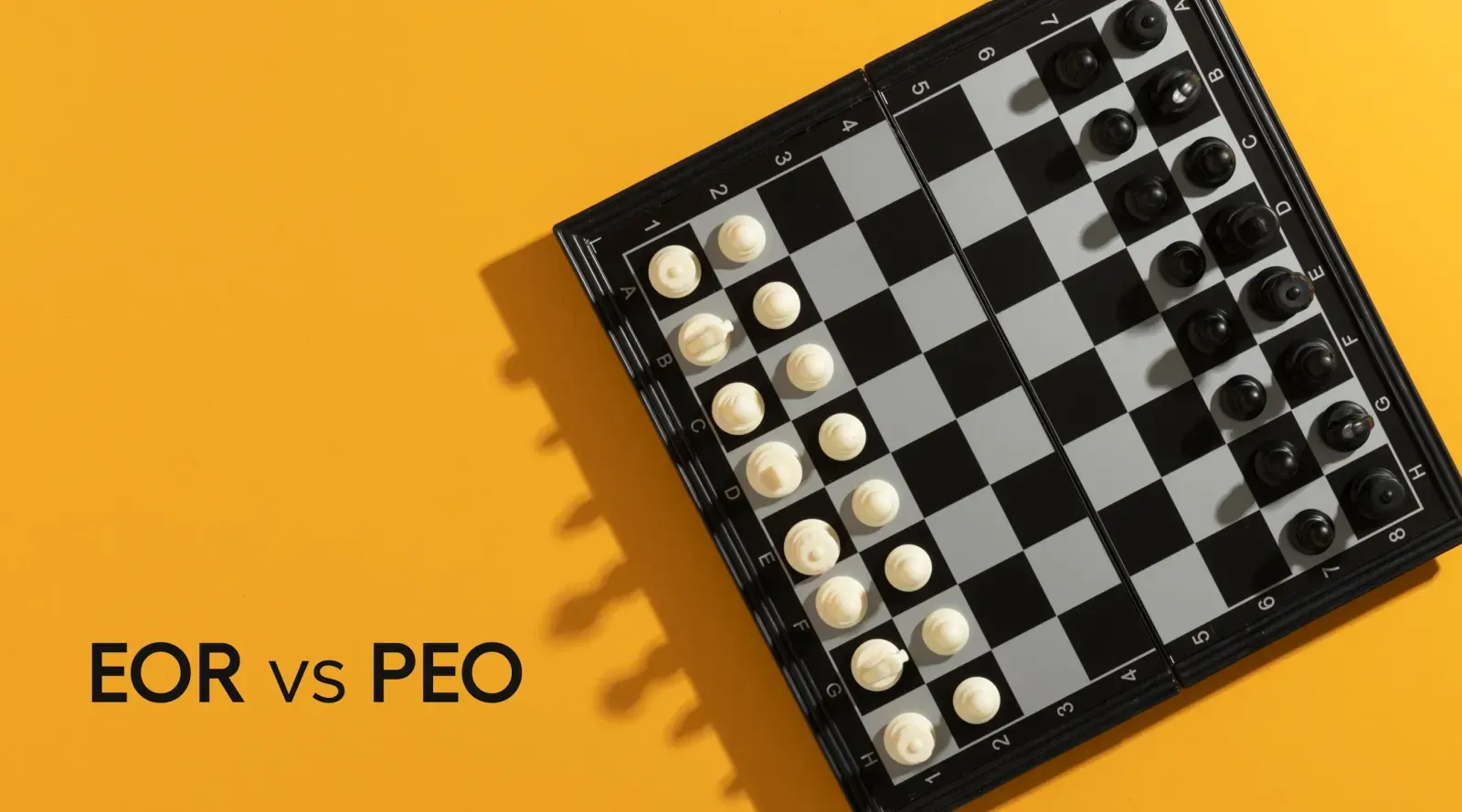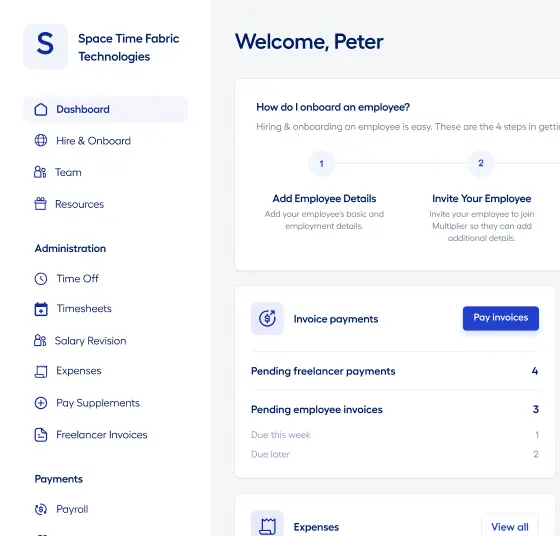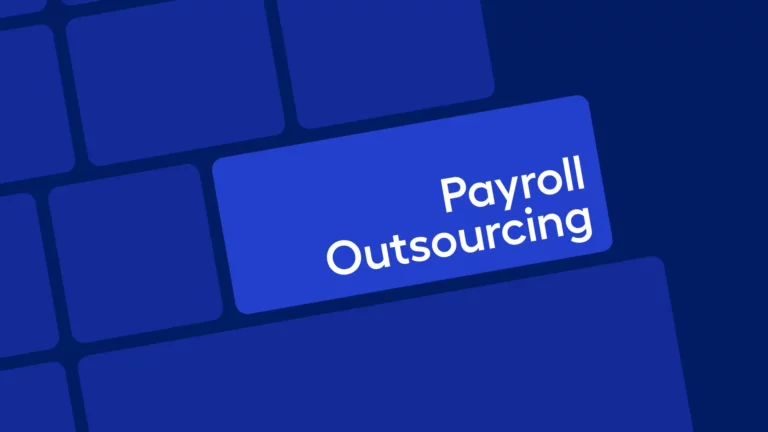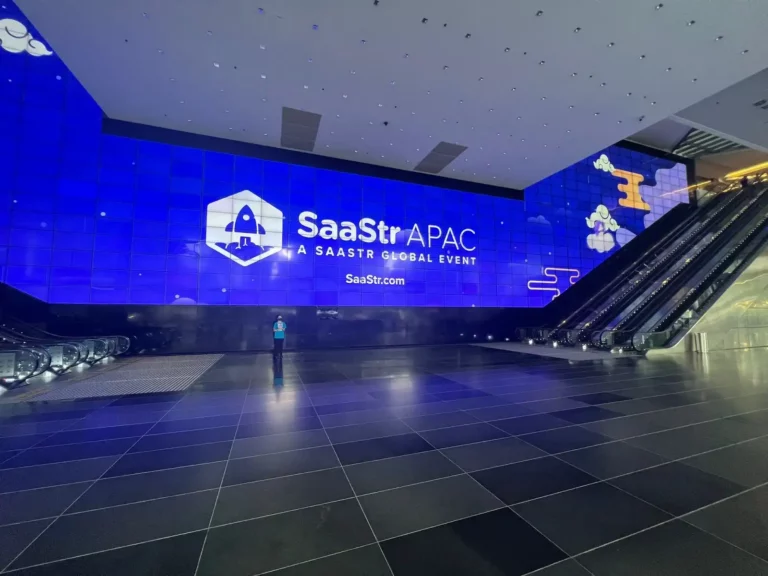The challenges of global talent acquisition are daunting, due to complex labor laws, stringent tax regulations and numerous compliance measures.
Managing employees across the globe demands greater HR capabilities. Furthermore, paying your global employees is a completely different challenge from managing them, as you must avoid paying double taxes and release payments on time.
Clearly, you need something more than a traditional HR set up. You need a solution that can streamline your international employee management without hiccups. This is precisely where an Employer of Record (EOR) and a Professional Employer Organization (PEO) come into play.
Let’s explore the two concepts to find out which can help you achieve your talent acquisition objectives.
An Overview of PEO and EOR
A Professional Employer Organization (PEO) partners with companies to provide them with a wide array of HR services :
- Payroll processing
- International payments
- Filing taxes
- Employee benefits
- Workers compensation
- Compliance management
As per a survey, small and medium businesses who rely on PEOs have increased their hiring rates by to 7%. Moreover, their hiring is 9% faster compared to other enterprises without PEOs and their business is 50% less likely to fail. Another study concludes that the EOR market will reach a valuation of USD 6,794.5 million by 2028 at a CAGR of 6.9% thanks to the solution’s secure compliance measures, no additional taxes and the opportunity to expand without a local entity.
However, PEOs offer their services to companies that have a registered entity wherever the company is located. The employee will see the PEO’s name on their payment invoice and other HR communication documents.
However, if a business does not have legal entities to hire and pay employees from a particular region they should collaborate with an Employer of Record (EOR). A global EOR provides services similar to a PEO, however, they take upon the entire legal responsibilities of the employees. Hence, a business that avails the services of an EOR can provide HR services to international employees without worrying about entity setup, opening bank accounts and other compliances matters. This is the best option for small-sized companies looking to tap into the global talent pool without any local entity to hire their desired candidates.
The statistics show the real-world success of PEO and EOR. But you must identify which one is perfect for you before signing up.
What Is The Difference Between An EOR And A PEO?
HR outsourcing, payroll, benefits, onboarding – these are the common terms associated with both PEO and EOR. However, there are differences in the way they operate.
Let’s talk about the major points that highlight the distinction between the two onboarding arrangements:
Get more control with a PEO
The biggest difference between a Professional Employer Organization and an Employer of Record is the degree of control you get. While both of them can take care of your global HR responsibilities, a PEO can give you more control over the operations.
When it comes to outsourcing HR functions, two popular models are PEOs and EORs. But what’s the difference? With a PEO, the client company still retains some control over its employees, but the PEO shares the legal and financial risks associated with employment. It’s like a partnership, with both parties shouldering the responsibility. With an EOR, the full responsibility for compliance, payroll, and benefits, falls on the EOR as it is the legal employer. It’s like having a dedicated HR department without the overhead costs.
Better Insurance Comes With an EOR
Insurance coverage is one of the areas where a Professional Employer Organization and an Employer of Record differ greatly. If you opt for a PEO, you will have to provide the insurance for your global employees on your own.
A PEO will take care of tax regulations and insurance in some cases. If your business belongs to an industry where material damage or bodily harm during work is common, a PEO may direct you to get your own insurance. For instance, if you run a delivery service, a PEO will not come for your support in terms of insurance if a delivery executive damages the package or hurts himself during the process. On the contrary, insurance claims such as these are much smoother with an Employer of Record provider.
With an EOR, it is possible to get compensation no matter the country you are in or the country your employee belongs to. Furthermore, an EOR is the better option when it comes to risk management because they take complete liability for cases of such nature.
EOR Lets You Hire Internationally Without a Local Entity
When you opt for an Employer of Record, you do not have to take the pressure of setting up an entity in whichever country you want to onboard resources. Yes, the EOR can be your local entity in any country. This is applicable even when you want to hire more resources from ten different countries at a stretch. The number doesn’t matter at all. This is the power of an Employer of Record.
Check our article to know more about national PEO.
PEO Proves Good for Payroll Compliance
The payroll rules across the globe change constantly and it becomes difficult to keep up with them. However, a PEO has dedicated experts for each country that constantly monitor the compliance risks and ensure that you remain within the legal domain.
If you assemble an internal team for the same task, you will end up spending too much time and resources on hiring the experts, research materials, building a proper system and executing on-time payroll for your global team. Hence, it is smarter and wiser to depend on a PEO in such cases.
The table summarizes the difference between an EOR and PEO:
| Employer of Record (EOR) | Professional Employer Organization (PEO) |
| Acts as the legal employer | Acts as a co-employer |
| Takes all the responsibilities and risks | Shares responsibilities with the employer |
| Handles few HR functions | Can handle all HR functions |
| Best option for onboarding contractors and temporary employees | Best for onboarding and managing the entire workforce |
| Legal entity not required in hiring global talent | Legal entity is necessary to hire global talent |
What Kind of Services Does Multiplier Offer?
Multiplier offers both PEO and EOR solutions for your onboarding requirements. By partnering with us, you don’t have to worry about the ever-changing labor laws and tax regulations across the globe. We keep a watchful eye for legal updates across the globe for you and ensure 100% statutory compliance.
We help you expand in 150+ countries with the perfect mix of technology and in-ground support enabling you to generate employment contracts faster, smoother onboarding, localized benefits, and organized invoice generation so you get a breakdown of all your expenses in one bill.
On-time payroll processing is very important to avoid unnecessary fines and motivate your global resources to showcase maximum productivity. We also release global payroll in local currencies in 120 countries and help you allocate ESOPs to deserving employees.
Multiplier’s PEO and EOR solutions let you manage your entire workforce in a few clicks, easing the pressure and hassle your internal teams have to go through every month.
For more information, feel free to get in touch with us.
FAQ
Q. Which solution – EOR or PEO is better if don’t own a legal entity in the employee’s country?
An EOR is your only choice if you do not own a legal entity in the employee’s country. The complexity behind setting up a legal entity varies within countries. Hence, you must consider the time and budget at your disposal if you still want to go with a PEO.
Q. How do EORs and PEOs fare when I want to scale my hiring?
If you are looking to hire only a few employees in a country, regardless of owning a legal entity, an EOR is the popular choice. However, the cost usually amplifies as you begin to hire more employees from a talent-rich country. Hence, a PEO with your own local entity is the best option if you want to hire aggressively.
Q. How do EOR and PEO services vary with temporary or full-time employees?
Usually, businesses choose an EOR while dealing with temporary and contractual employees. This is because EOR provides the essential HR services that are perfect for temporary working relationships. On the other hand, a PEO gives you access to its entire offerings, that elevate your experience while managing full-time employees.







